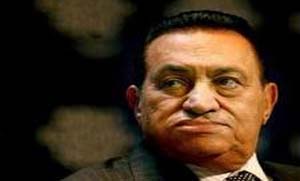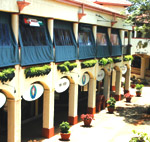Free education returns?

But the judgment, which he announced after sitting as an Appeal Court with Justice Nicholas Ndou, has torched a lot of debate in the education sector.
Local schools have for long used expulsion or exclusion of pupils as a way of forcing parents to pay up.
But the age-old tradition has abruptly come to a halt after the High Court verdict, throwing schools off balance and leaving many administrators in a quandary.
Perhaps the question most asked by the school heads is: How on earth do the High Court judges think we will be able to make parents settle school fees arrears?
Educationists note that for now, the school heads have limited options.
“The schools must start a process of working amicably with the parents and negotiating with them when it comes to payment of school fees,” said veteran educationist Dr Sikhanyiso Ndlovu.
“They must have payment arrangements and start accepting instalments.”
Dr Ndlovu said the other option was for the schools to take parents to court to induce payment.
But he said the schools should not rush to use the court route as they may find themselves entangled in unnecessary legal issues.
Dr Ndlovu said the High Court decision was welcome in that it protected children from psychological torture caused by missing lessons.
“Punishing students for failure to pay school fees resulted in them suffering from inferiority complex,” he said.
“The judge was correct and this has always been the position of the Government that no child must be expelled from school for failure to pay school fees.”
Dr Ndlovu said the verdict was a wake-up call to the Government to increase funding to the education sector.
He said establishing an Education Bank, where parents could borrow money for school fees, could help solve the problem.
There were no cases of children being expelled from school in the 1980s when the Government had a policy of universal access to free education.
But issues took a different turn when the International Monetary Fund intervened and persuaded the abandonment of the system.
Since the 1990s, a number of pupils have failed to progress with education because their parents could not afford the fees.
The situation became tough with the recent advent of the use of foreign currency, which has seen schools charging exorbitant fees.
Another veteran educationist and former school head, Mr David Mutambara, said parents should not take advantage of the ruling to stop paying school fees and complicate issues.
“It is important that parents realise that they have responsibilities,” he said.
“The responsibility for answering to failure to pay school fees is simply being taken from the child to the parents and parents must realise that quality education will be compromised unless they contribute.”
Mr Mutambara said the new dispensation needed schools to be supported with resources to cushion parents from bearing all the costs.
A Harare law expert said what the verdict means is that a child can simply go through school up to A-level without necessarily paying school fees.
The child would be able to sit examinations and collect results even if parents renege in paying school fees.
This will obviously put pressure on school heads to find ways to force payment of the school fees before the child leaves school.
Some parents are known to resist payment of school fees even if their children are expelled or excluded from lessons.
The situation is expected to be worse with the High Court verdict which “takes pressure off parents” and squarely diverts it to the schools.
The Deputy Minister of Education, Sport, Arts and Culture, Cde Lazarus Dokora, said the judgment confirmed what the Government has always been saying.
“There is no inherent right in the head or the School Development Association to abuse children by denying them access to classes and chairs in lieu of school fees,” he said.
“We have tried to use persuasion and a framework of regulations for schools not to expel students, yet they would not heed. But the law has teeth and my reaction is to say to the school heads that they must take heed.”
Cde Dokora said the core business of schools was to foster learning and they could not do that when most of the pupils were not at school after being expelled.
The courts are already dealing with cases in which some schools have taken parents to court for failure to pay development levies.
Mutasa Primary School in Harare’s Highfield suburb is seeking a warrant of arrest for more than 100 parents who defied a court order to settle arrears.
Many more schools are expected to follow the same route as their only alternative to make parents pay the requisite fees.
But the problem may be that many schools could find themselves stretched and without enough resources to sustain the court challenges.
This will obviously leave parents free to determine if they would pay the fees.
Progressive Teachers’ Union of Zimbabwe secretary-general Mr Raymond Majongwe said the verdict by the High Court was “progressive”.
“No child must be denied education because of the status of their parents,” he said. “One of the reasons why the liberation struggle was fought was to prepare ground for children from poor backgrounds to access education.
“We shout hallelujah and we salute that judgment. We are opposed to IMF and World Bank dictates that make education expensive.”
Mr Majongwe said the judgment clearly highlighted the need to redefine the local school system for it to cater for core activities.
“I am convinced that as long as each arm performs its function, there will be no problem,” he said. “Let the Government chip in and help maintain buildings for public schools.”
But headmasters are fuming at the judgment, which they say puts schools “in a tight corner”.
“What will schools do if parents totally refuse to pay?” asked Tynwald Primary School head Mr Saviour Mujere. “What redress will the schools have?
“As teachers, we bargain with the parents that we will teach their children. But if one party fails to play its part, then there is a problem.”
Mr Mujere said parents should provide resources so that their children can be taught, failure of which they would see measures taken against themto induce payment.
One of the most effective methods to ensure parents pay is obviously to expel or exclude the respective children.
“Schools are not legal entities but they might find themselves preoccupied with legal issues,” said Mr Mujere.
“Our focus is on teaching children and we will be losing focus by pursuing complicated methods to ensure that parents pay school fees.”
Other headmasters who preferred anonymity for professional reasons said the verdict would hinder the smooth functioning of schools.
They said the Government should come out clear if it wanted to reintroduce the policy of free education, instead of putting schools under pressure.
The High Court judges made the landmark judgment after a school head and her deputy at Cecil John Rhodes Primary School in Gweru appealed against a sentence barring pupils from lessons for failure to pay school fees.
The two had been sentenced to 24 months in prison, which were wholly suspended on condition that they each performed 840 hours of community service.
The High Court judges upheld the conviction but substituted the sentence with a US$250 fine each or six months in prison.
But they said the punishment of pupils on the basis of failure to paying school fees remained illegal.
The move, said the judges, contravened the Child Protection Act.
They urged parents whose children were being subjected to punishment over school fees to report such malpractice to the police.-The Sunday Mail









Comments